UN Security Council calls on Syrian regime to come clean about its chemical weapons
Wed 06 Jan 2021, 11:44:39
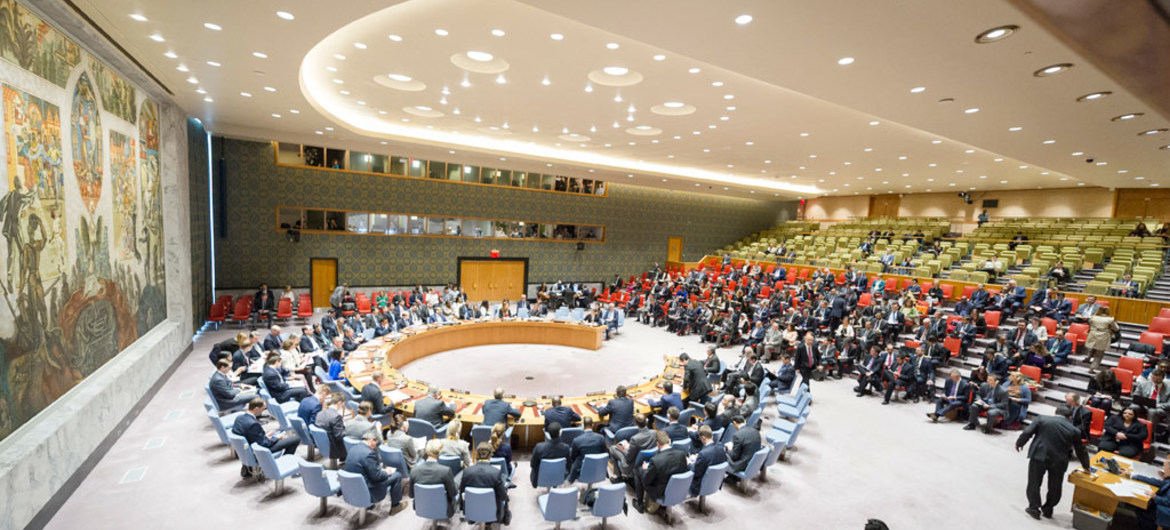
NEW YORK: Syria’s former permanent representative to the UN, Bashar Jaafari, drew on his nation’s literary heritage during a meeting of the UN Security Council on Tuesday.
He addressed the council as its members discussed the Syrian regime’s use of chemical weapons against its own people, and its failure to comply with a Security Council resolution ordering the destruction of such weapons.
Jaafari, who left his UN post in November when he was appointed deputy minister of foreign affairs, noted that Syrian literature “has reached the whole world.” He highlighted “One Thousand and One Nights,” better known in English as the “Arabian Nights,” and in particular its tale of “Ali Baba and the 40 Thieves.”
He said: “Despite the victory of the good in ‘Ali Baba,’ the 40 thieves are still running around in Western capitals, looting resources and livelihoods and tarnishing our reputation by replacing our ‘One Thousand and One Nights’ with 1,001 lies.
“Lies without borders. Doctors without borders. Reporters without borders — everything is ‘without borders’ these days.”
As he turned his attention to “Waiting for Godot” to present further analogies, his comments were in stark contrast with the seriousness of the matter under discussion by the council.
During its first session of the new year the council was briefed by Izumi Nakamitsu, the UN’s under-secretary-general high representative for disarmament affairs, on the implementation of Resolution 2118. It was unanimously adopted in September 2013 following a UN investigation that confirmed the use of chemical weapons against civilians in a Damascus suburb the previous month. Images of people, including children, suffocating after breathing in the nerve agent caused outrage worldwide.
The resolution called on the Syrian regime to destroy its chemical weapons by mid-2014, and in the event of non-compliance, the introduction of punitive measures. It banned Syria from using, developing, producing, acquiring, stockpiling or retaining chemical weapons, or transferring them to other states or non-state actors.
In October 2013, Syria submitted to the Organization for the Prohibition of Chemical Weapons (OPCW) a formal initial declaration covering its chemical-weapons program, including a plan for the destruction of its chemical weapons.
Nakamitsu told the Security Council that, more than seven years later, the declaration “cannot be considered accurate and complete in accordance with the Chemical Weapons Convention (CWC).”
“Gaps, inconsistencies and discrepancies” have been identified that cast doubt on the true extent of the elimination of chemical weapons during the Syrian Civil War, she added.
While “some progress” has been made, resulting in the closure of three issues related to the initial declaration, Nakamitsu said 19 issues remain outstanding as investigations continue into allegations of the use of chemical weapons in a “variety of incidents.”
One such issue concerns a facility the Syrian authorities said had never been used for the production of chemical weapons. However information and evidence gathered by the OPCW since 2014 indicates that the production or weaponization of chemical warfare nerve agents took place there, Nakamitsu said. The OPCW has ordered the Syrian government to reveal the types and quantities of chemical agents produced or weaponized at the site. It has yet to respond.
Dmitry Polyanskiy, Russia’s first deputy permanent representative to the UN, defended the Syrian regime and criticized what he described as the OPCW’s “unconvincing evidence and biased witnesses from (Syrian) anti-government opposition or the infamous white helmets.”
He said the report
contains “inconsistencies” and accused the OPCW and western delegations of “artificially” creating a frenzy over the issue of chemical weapons in Syria, and of “blatantly applying double standards” by forgiving some countries their “minor errors” while being implacable with the Syrian regime.
contains “inconsistencies” and accused the OPCW and western delegations of “artificially” creating a frenzy over the issue of chemical weapons in Syria, and of “blatantly applying double standards” by forgiving some countries their “minor errors” while being implacable with the Syrian regime.
China’s permanent representative, Zhang Jun, dismissed the report as lacking “conclusive evidence.” Describing it as an “incomplete chain of evidence with loose ends,” he urged the international community to consider claims by the Syrian ambassador that “terrorists” are to blame for the use of chemical weapons. “Terrorist” is a blanket term used by the Syrian regime to describe any opposition.
Ambassador Richard Mills, the US deputy permanent representative to the UN, accused Russia of campaigning to discredit the OPCW.
“Neither this council nor the world is fooled,” he added. “One can say a thing loudly and repeatedly but that does not make it true.
“What is true is that the Assad regime has used chemical weapons against the Syrian people. The OPCW has demonstrated this credibly and objectively, corroborating the findings of thousands of Syrian and international groups.
“Assad’s use of chemical weapons is not in dispute. It is not a matter of opinion — it is a matter of fact confirmed by the OPCW.”
Mills urged Russia and “the Assad regime’s other defenders” to encourage it to “come clean about its chemical weapons and its stockpiles.”
The majority of council members accepted the OPCW’s findings as being highly credible, with all claims supported by clear evidence.
French envoy Nicolas de Rivière could not conceal his incredulity as he asked: “How do we explain that 19 questions still remain open seven years after the adoption of resolution 2118. Above all, how do we explain that new questions continue to add to the old ones?
“Contrary to what some claim, it is incumbent upon the Syrian regime to resolve these issues. Simple gestures could be made: the first is to shed light on the new undeclared production sites that have been evidenced by the OPCW.”
British ambassador Barbara Woodward described the unresolved issues relating to Syria’s declaration as “serious and substantive.” She added:
“They include the unaccounted-for whereabouts of thousands of munitions and hundreds of tons of chemical agents.”
She said there is growing concern about Syria’s “ongoing failure to comply with its obligations under the CWC and the consequent threat to international peace and security.” Since the regime “allegedly” destroyed all of its chemical stockpiles in 2014, it has used chemical weapons on at least 6 occasions, Woodward added.
“These are not hypothetical issues for the thousands of Syrian civilians who have suffered the horrifying effects on the body of nerve agents and chlorine,” she said. She vowed that the OPCW’s Conference of the States Parties (COSP) will consider taking action over the Syrian regime’s failure to comply.
Mills also called on the COSP to take appropriate action when it reconvenes in the spring, “to send a strong message to Assad regime that the use of chemical weapons and direct contravention of CWC obligations has consequences.”
The US and 45 cosponsor countries have submitted a draft resolution to the COSP “in response to Syria’s brazen and repeated violations of its obligations under the CWC.”
“We support all efforts toward accountability,” said Mills. “These are essential to render overdue justice to the victims of the Assad regime, who need and deserve the international community’s support.”
No Comments For This Post, Be first to write a Comment.
Most viewed from International
Most viewed from World
AIMIM News
Latest Urdu News
Most Viewed
May 26, 2020
Should there be an India-Pakistan cricket match or not?
Latest Videos View All
Like Us
Home
About Us
Advertise With Us
All Polls
Epaper Archives
Privacy Policy
Contact Us
Download Etemaad App
© 2026 Etemaad Daily News, All Rights Reserved.

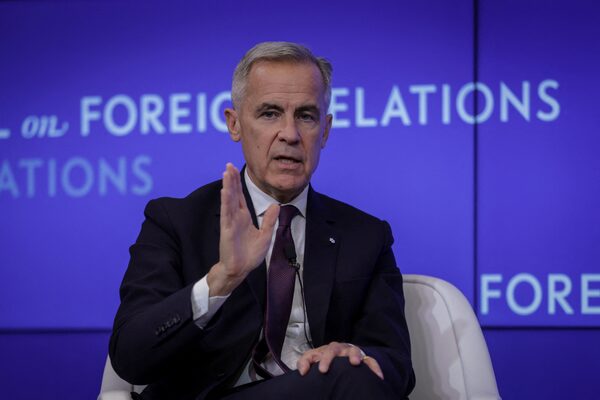






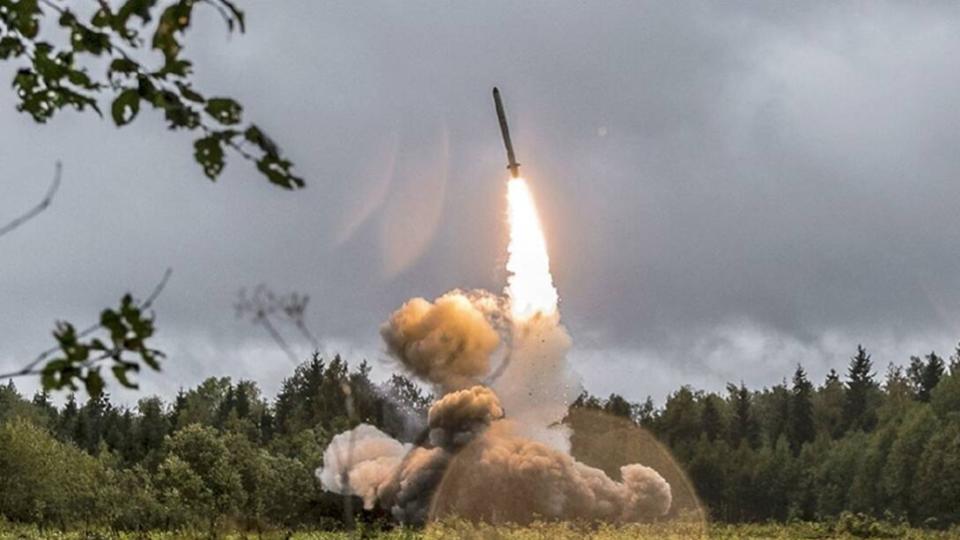
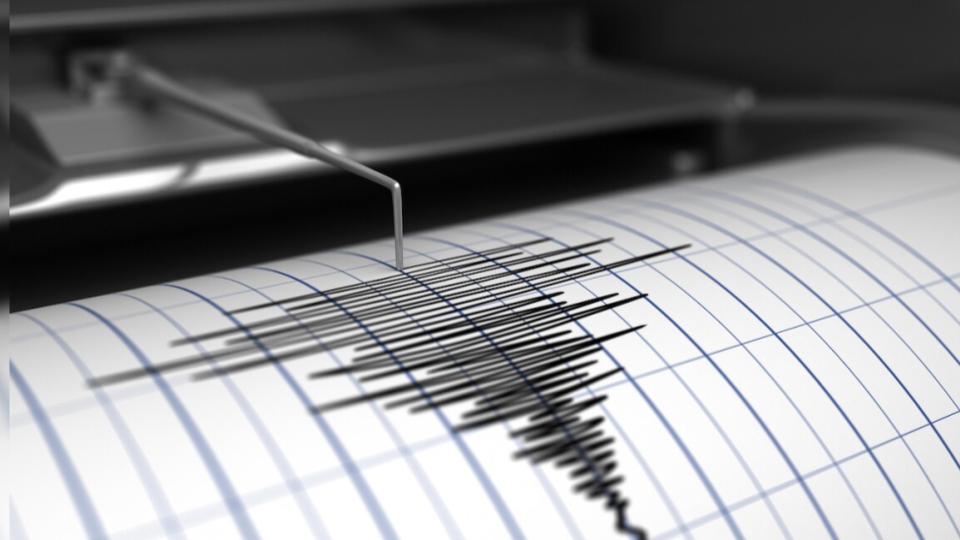
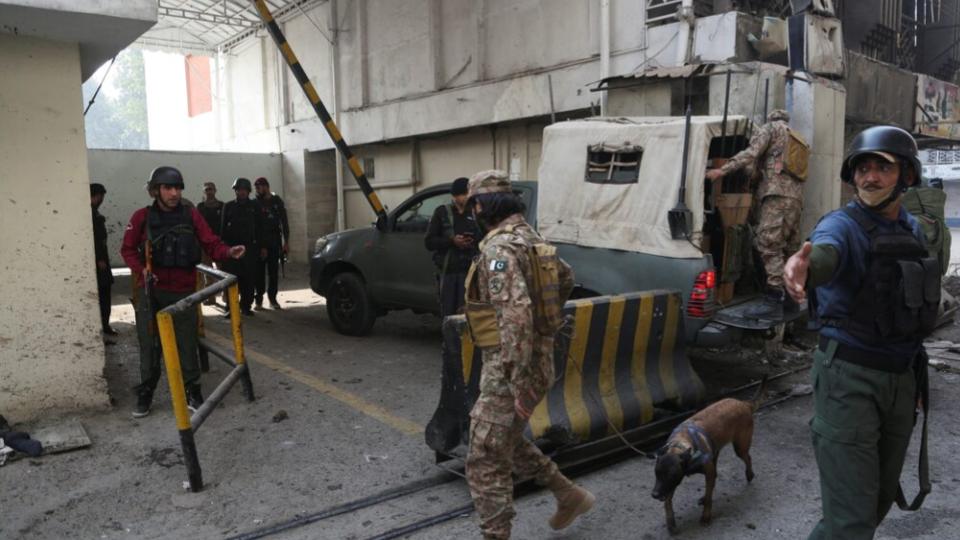
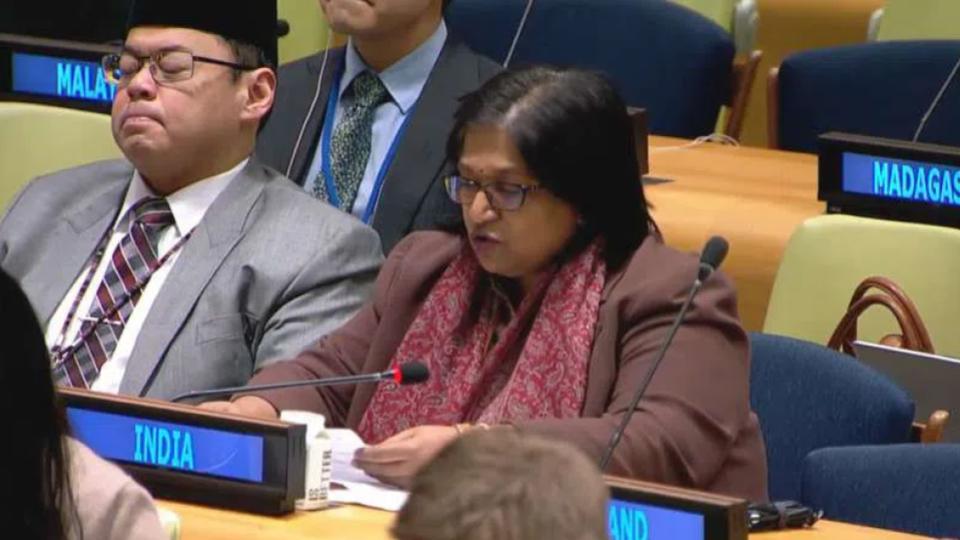



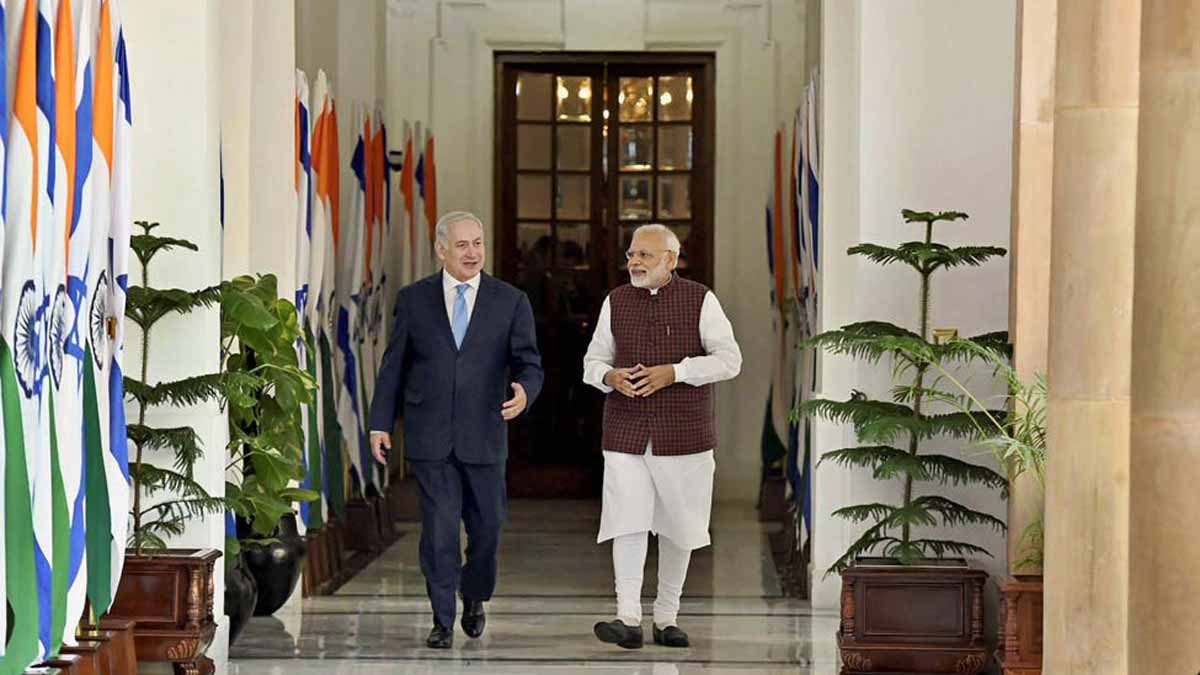


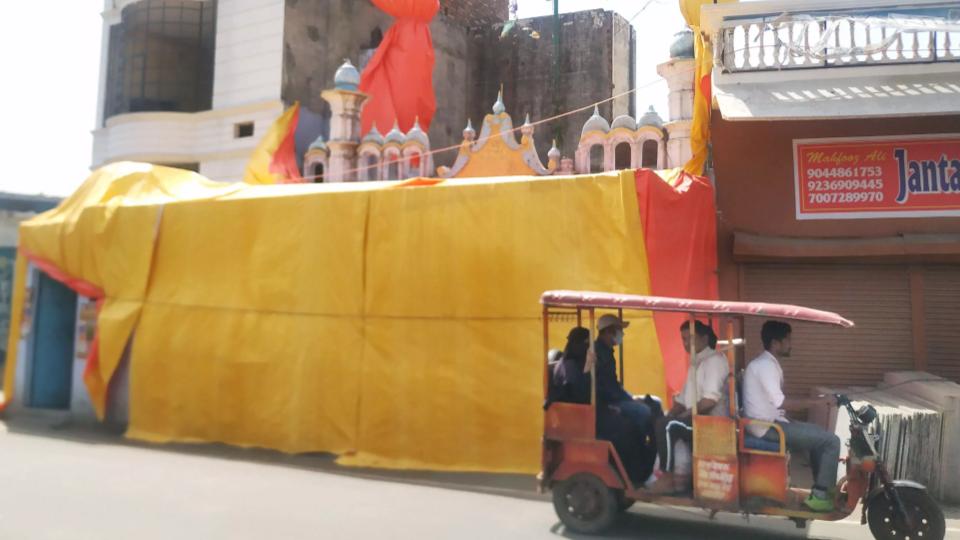




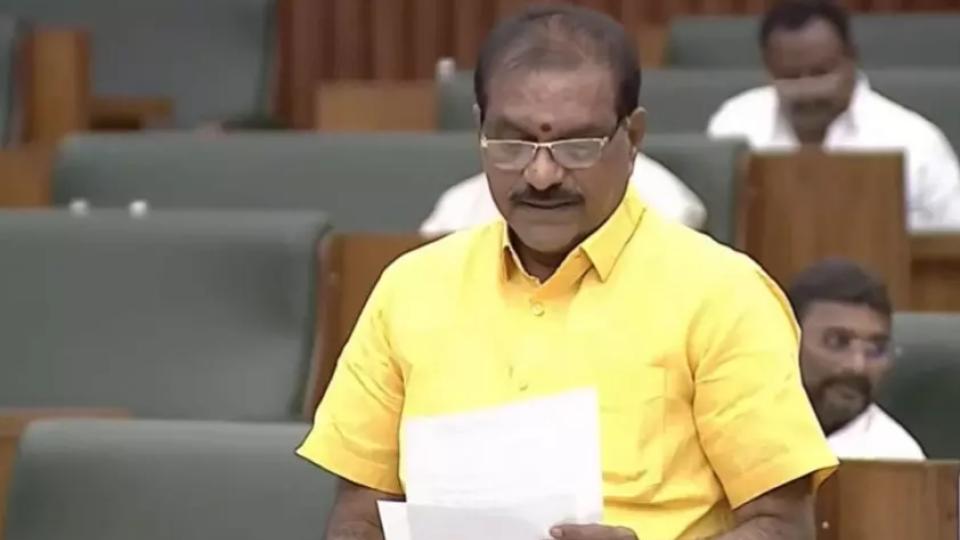
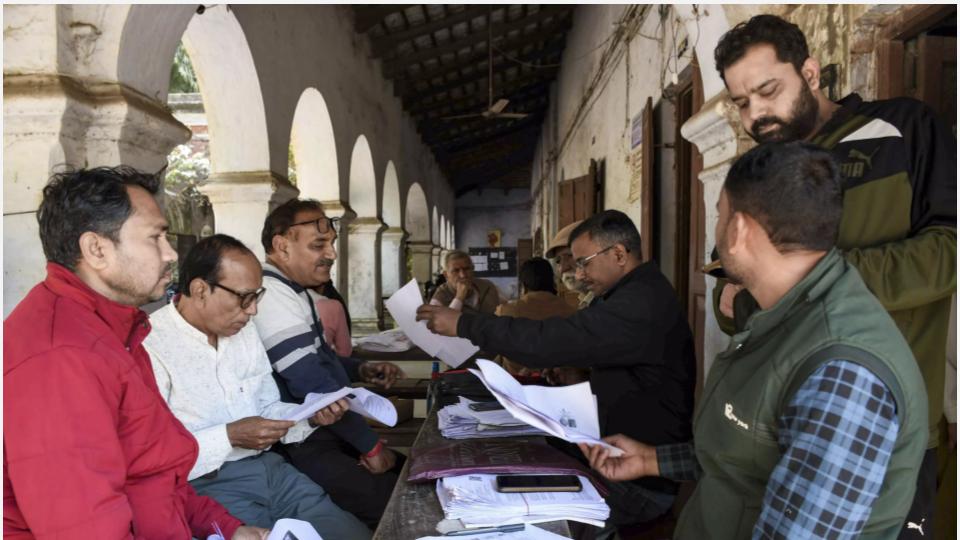












.jpg)
.jpg)
.jpg)


